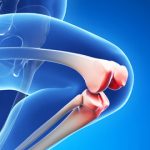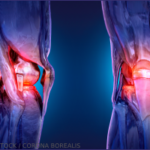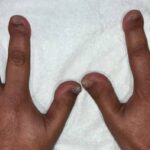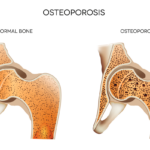The FDA has approved the first interchangeable biosimilars for denosumab.


The FDA has approved the first interchangeable biosimilars for denosumab.

Ryan Basen |
About 30 years ago, early in his career as a rheumatologist, Dirkjan van Schaardenburg, PhD, says patients with osteoarthritis experienced terrible problems with inflammation. The landscape has improved to the point that “people can live with it now,” he says. But they still need help. For example, osteoarthritis affects 7% of the global population, according…

Promising Results from a Phase 3 Study SAN DIEGO—An investigational liposomal formulation of dexamethasone sodium phosphate (TLC599) for intra-articular injection is being studied to treat patients with knee osteoarthritis (OA). George Spencer-Green, MD, MS, chief medical officer of Taiwan Liposome Company (TLC), Cambridge, Mass., presented recent data on this agent in a late-breaking abstract session…

In January, the U.S. Food & Drug Administration approved indomethacin in an oral suspension, a generic version of Indocin Oral Suspension. The agency also issued a boxed warning and updated label for denosumab, warning of the risks of severe hypocalcemia in patients with chronic kidney disease.

During ACR Convergence 2023, experts discussed developments in the treatment and diagnosis of osteoporosis, addressing risks of treatment discontinuation, the use of bone turnover markers in patient assessment and vitamin D.
In 59,970 twins aged 35 years or older, Magnusson et al. compared how much genetics contributes to osteoarthritis (OA) with the genetic contribution to other rheumatic/musculoskeletal diseases (RMDs) in the same population, while exploring the role of shared genetics in OA and other RMDs. The researchers used data from the Swedish Twin Registry, in addition to the Swedish National Patient Register. They concluded that the heritability (i.e., the total genetic contribution to a trait) of OA is relatively large compared with other rheumatic musculoskeletal diseases.

Larry Beresford |
SAN DIEGO—Pain is one of the most common symptoms of rheumatic disease, and this session at ACR Convergence 2023 was dedicated to understanding recent research concerning the relationship between pain and inflammation.

The ACR released a new arthroplasty guideline in an effort to remedy significant & detrimental delays faced by osteoarthritis or osteonecrosis patients who require surgical intervention.

Ibtissam Gad, MD, Firas Askar, MD, Sudhaker Rao, MD, & Ayad Alhatib, MD |
Hajdu-Cheney syndrome (HCS) is a rare connective tissue disease, with fewer than 100 cases reported worldwide.1 Hallmark features include acro-osteolysis (i.e., resorption of the distal phalanges of the hands and feet), osteoporosis, facial dysmorphisms, and craniofacial and dental abnormalities. Patients often have short stature and can have neuroanatomical deformities causing intellectual disabilities. These patients can…

The ACR recently released an update on the prevention and treatment of glucocorticoid-induced osteoporosis.1 The guideline, which includes information on the new therapies abaloparatide and romosozumab, emphasizes the importance of shared decision making by patients and clinicians, and also gives information on the importance of sequential therapy after stopping certain osteoporotic prevention therapies. Fracture Prevention…